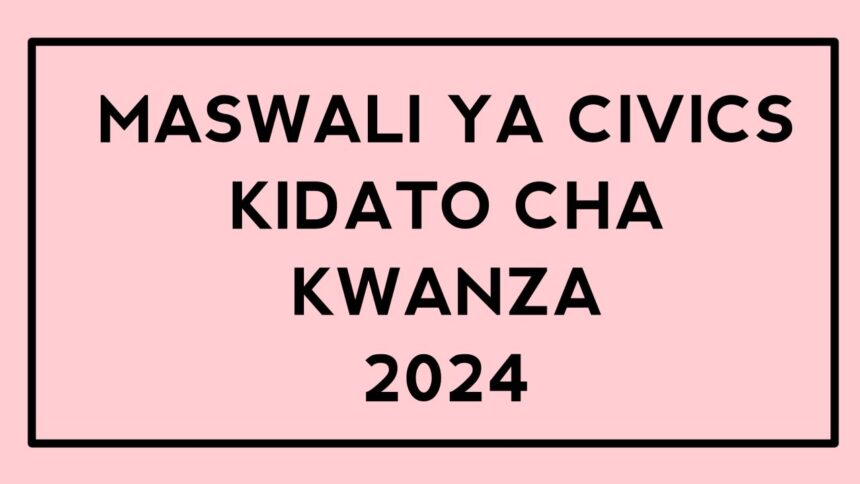Welcome to the exciting world of civics! As you begin your journey into understanding how societies function and how individuals contribute to their communities, you might find yourself facing various questions. For Form One students, getting to grips with civics can be both intriguing and essential.
Download Civics Questions Below:
What is Civics?
Before diving into specific questions, let’s start with the basics. Civics is the study of the rights and duties of citizens and how governments function. It’s about understanding how societies are organized, how laws are made, and how individuals can participate in their communities.
Key Civics Questions for Form One
What are the primary functions of government? Governments play several critical roles in society:
- Legislative Function: Making laws that govern the country.Executive Function: Implementing and enforcing laws.Judicial Function: Interpreting laws and resolving disputes.
What is the role of a citizen in a democracy? In a democracy, citizens have both rights and responsibilities. Some of the key roles include:
- Voting: Choosing leaders and deciding on important issues.
- Obeying Laws: Following the rules set by the government.
- Participating in Civic Life: Engaging in community activities and public discussions.
- Respecting Others’ Rights: Understanding and honoring the rights of fellow citizens.
How are laws created? Laws are created through a process that typically involves:
- Proposal: A new law (or bill) is proposed by a member of the legislature.
- Debate: The proposal is debated and revised by legislators.
- Approval: The revised bill is voted on. If approved, it is sent to the executive (like the president or prime minister) for final approval.
- Implementation: Once approved, the law is enforced by the executive branch.
What is the importance of the constitution? The constitution is a fundamental document that outlines the principles and laws of a country. It serves several important functions:
- Establishing Government Structure: Defining how the government is organized and operates.
- Protecting Rights: Guaranteeing basic rights and freedoms to citizens.
- Guiding Laws: Providing a framework for creating and interpreting laws.
How can students contribute to their community? Even as students, you can make a difference in your community by:
- Volunteering: Helping out in local organizations or events.
- Being Informed: Learning about local issues and discussing them with others.
- Taking Initiative: Starting or participating in school or community projects.
Why is Understanding Civics Important?
Understanding civics helps you become an informed and engaged member of society. It empowers you to:
- Make Informed Decisions: Know how to vote and advocate for issues you care about.
- Understand Your Rights: Be aware of your rights and how to protect them.
- Participate Actively: Contribute meaningfully to your community and influence positive change.
